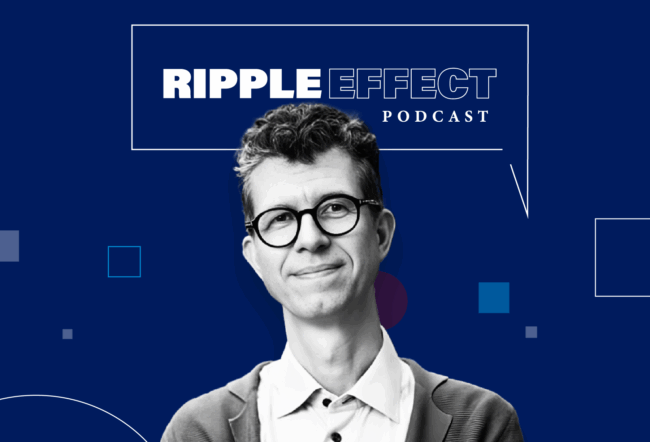Neinver, a real estate development firm that specializes in turnkey non-residential properties, is one of the few Spanish companies to have grown stronger during the ongoing financial crisis, which has devastated the commercial real estate (CRE) sector. Spain’s real estate market generally has suffered huge setbacks, with housing and office rental markets seeing a drastic fall in demand. This has left more than a million new housing units unsold, and led to a 50% drop in the prices for CRE leases in large cities such as Madrid and Barcelona.
During boom times, many CRE companies in Spain enjoyed rapid growth at home and overseas. These companies also became leaders in, Latin America and Eastern Europe, thanks to the almost unlimited access to credit and the knowhow acquired in Spain’s domestic market.
Real estate developers gobbled up other companies which, in some cases, generated higher revenues than the companies that bought them. The developers bought land at record prices and planned projects for thousands of housing units. They managed more than a million square meters of offices under construction and created the largest shopping centers in Europe. For example, real estate developer Martinsa (owned by Fernando Martin, ex-president of Real Madrid) acquired the Fadesa construction firm in order to create a group traded on the Madrid stock market). Habitat, a Catalonian company, took over the real estate division of Ferrovial, a powerful group of Spanish companies, and Reyal Urbis created a hotel division, Rafael Hotels, named after its president, Rafael Santamaria. These companies promoted all sorts of products, including residential units, shopping centers, retail shops, offices and industrial warehouses.
Amid this boom of mergers and acquisitions, real estate firm Neinver swam against the current of increasing risk taking. “During the 1990s, when people began to build shopping centers, we preferred to differentiate ourselves by creating ‘outlets,’ [shopping centers that specialize in selling quality products at low prices]. Later, by the time everyone else went abroad, we had already had seven years of experience operating in Poland,” says Manuel Lagares, Neinver’s CEO. Lagares began to work in the family owned company six years ago as general manager responsible for operations in retail, asset management, real estate investments, business development and marketing. His greatest achievement was to launch the Irus real estate management fund, which specializes in buying and selling properties in Europe. Earlier, he had held public administration positions, culminating with the post of assistant secretary of science and technology in 2000.
A Unique Model
Neinver’s cautious approach has proven effective during this downturn. The company’s outlets offer up-to-date products thanks to its extensive inventory of leading, highly reputable brands brought forward from previous seasons, which allows for significant discounting. “Our value proposition is to provide a platform for our customers so they can sell their products that are out of season,” Lagares notes. “We look at outlets as a service for [fashion] chains that need to dispose of their products.” In addition, there is a broad portfolio of 11 Neinver properties divided among five markets: Poland, Germany, Spain, Portugal and Italy. Neinver is the market leader in the first three of those countries. This enables the company to provide “global” solutions for the accumulated inventory by using its ability to contract for outlet services across several countries.
“We began in Spain, and then we continued into Poland because of the demands that our customers made on us, and because it [Poland] is a very similar market to Spain,” Lagares says. “After that, we entered Portugal because of its geographical proximity. Then, we went into Italy, because of its importance in the sector in which we work, that is, fashion, and this year, into Germany.”
Neinver’s international activity does not seem to have been affected by the crisis, since it expects to post the same sales volume for the 2009 fiscal year as it did in 2008.Now it is preparing to incorporate thousands of new square meters into its real estate portfolio. “At the beginning of December, we opened an expanded outlet center in Portugal, which will mean an additional 14,000 square meters of gross commercial space,” Lagares says. Added to this second phase will be a new project that the Spanish real estate developer is already preparing in southern Portugal in the Algarve region, scheduled to begin in late 2010. “In addition, in Italy we have other projects which we will complete in coming months, as well as an expansion, in a third phase, of an outlet.”
The International Council of Shopping Centers, with 60,000 members involved in CRE in more than 80 countries, has just granted Neinver its prestigious ranking as the second-largest operator of outlets in Europe, just behind, the Henderson international fund. The award comes in part because Neinver is the leader in most of the markets where it participates. Overall, the real estate company manages 348,200 square meters of gross leasable space (GLS) and 22,300 square meters of outlets. “Our success in managing the company is rooted in looking for opportunities to improve our positioning in every market,” according to Lagares.
Generational Change
Founded four decades ago, Neinver belongs to a branch of the Losantos del Campo family, which is entrenched in Spain’s real estate sector. In 1969, José María Losantos del Campo created Neinver, an outlet specialist, while his brother Mario created Riofisa, a real estate firm specializing in shopping centers. Both entrepreneurs have given their real estate firms to their sons. However, Mario Losantos Ucha, son of the now-deceased Mario Losantos del Campo, along with Losantos Ucha’s sisters Eva, Irene and Sara, continue to be closely involved in the real estate sector through various companies and investment vehicles, even after selling Riofisa to Colonial, one of the giant firms born during the boom.
Neinver has already begun moving toward another round of generational change. Although José María Losantos del Campo continues to be the company’s president, his son José María Losantos Santorromán has ceded his post as chief executive officer to Lagares, in order to take another more important position in the company’s senior management. “The founder has given way to his son, with a decided commitment toward the internationalization and professionalization of the managerial body,” notes Lagares. He adds that Neinver continues to maintain the values of a family enterprise such as “flexibility” and “rapid decision making.” Carmen Losantos Santorromán and her sister Maria Pilar, director, also play leading managerial roles.
According to Lagares, “Our growth has been through self-financing. We don’t pay dividends because we reinvest our profits.” As a result, the firm has overcome credit restrictions, thus avoiding the financial problems that ruined the Spanish real estate market and caused most Spanish commercial banks and savings banks to restrict access to credit for individuals and corporations. “We have maintained a very prudent debt policy throughout the history of the company; the debt ratios never exceed 50%,” he says.
Managing the Crisis
So far, the decline in consumption has not had a big impact on Neinver. Nevertheless, the company has learned how to adapt itself to the problems that customers can face. “We have fashion chains that have problems distributing their supply through ordinary sales channels (shops on streets and in shopping centers), and yet see that in our outlets, the sales volumes of our customers are growing at double digit rates.”
Other management strategies that enable the company to maintain financial strength in the downturn include its tenant portfolio and its varied range of offerings. “We maintain full occupancy rates (98%) because our clients are big brands, compared with the small retailers in [other] shopping centers, and because our installations have always had, not just fashion retailers, but stores that offer home furnishings and shops that sell small appliances,” Lagares says. “These are complementary activities, and they show us that the market is evolving without losing the essence of the outlet, which is out-of-season quality fashion.”
From 2008 through 2010, Neinver plans to invest 500 million euros in the CRE sector, with plans to develop 124,000 new square meters over the next 30 months. “At a time when consumption is declining and there is uncertainty about employment figures, we are only going to commit ourselves to projects that are in unique locations, or that are expansions of existing centers,” Lagares says. In this ambitious but well-measured policy of expansion, Neinver plans to enter new markets such as France and the U.K., and to strengthen its position in the German market.
“In recent years, the outlet formula has been performing very well, and we can’t rule out the idea of entering England. It will be through the purchase of a shopping center that has already been developed, since the United Kingdom is a very mature market when it comes to low-price fashion malls, and it is more profitable to acquire than to develop your own property,” says Lagares. That way, Neinver will replicate the model that it developed in Germany, which it entered by buying the largest outlet center in the market, known as Zweibrücken. That project is in Frankfurt, and it is already in its fourth phase of expansion.
In addition to acquisitions and expansions, Neinver is already studying projects in new markets. “In Paris, we are looking into setting up two new projects,” Lagares adds.



